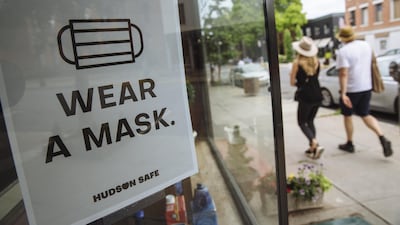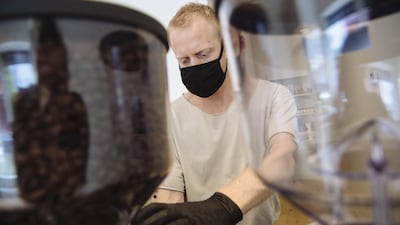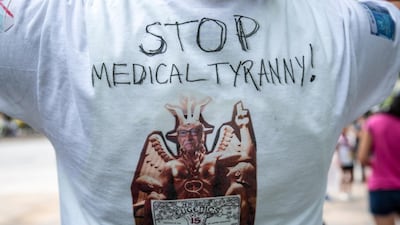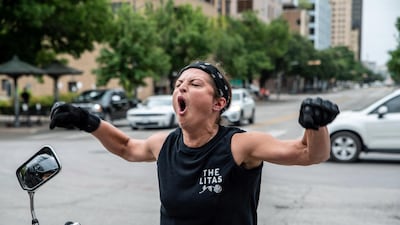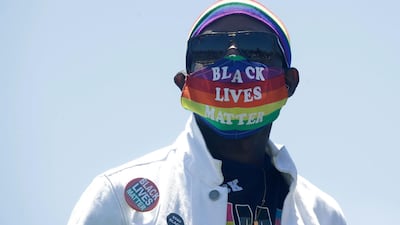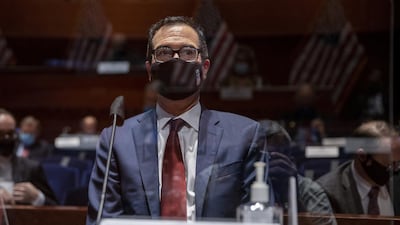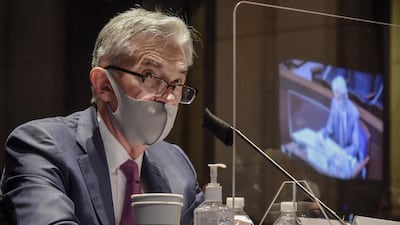Infectious disease experts have given a cautious welcome to new guidance from the US Centres for Disease Control and Prevention that suggests “fully vaccinated” people can visit one another indoors without masks or social distancing.
The guidance, published on Monday, offers one of the first examples of health authorities easing recommendations in response to the introduction of Covid-19 vaccines.
The CDC also says fully vaccinated people can meet unimmunised people from a single household indoors without social distancing or masks – if those who have not been inoculated are not at risk of severe illness.
Paul Hunter, an infectious disease specialist and professor of medicine at the University of East Anglia in the UK, said the CDC guidelines tied in with findings that vaccinated people were less likely to spread the virus, although the risk was not eliminated.
Prof Hunter said that whether the CDC’s advice was appropriate depended on how widespread the virus was in a population and how high the "reproduction number", or R, was.
“If the R value is high, I don’t think it’s a sensible thing to be recommending," he said. "If the R value is low and there isn’t much disease, I think it’s sensible."
While the CDC offers vaccinated people the prospect of easing social distancing and other measures, there are concerns among experts that people may become too carefree, possibly leading to a sharp increase in infections.
Prof Hunter referred to research carried out last month that found 41 per cent of people over the age of 80 in England, who had received their first vaccine shot within the previous three weeks, breached Covid-19 guidelines such as meeting someone from another household indoors.
“I think there’s concern that after a single dose of vaccine, people are getting a bit too lax,” he said.
The CDC defines “fully vaccinated” people as those who received a second dose of the Pfizer-BioNTech or Moderna vaccines or a single dose of the one-shot Johnson & Johnson vaccine at least two weeks earlier.
The organisation said fully vaccinated people did not need to be quarantined or tested after being exposed to someone with the coronavirus, if the inoculated person remained asymptomatic.
Vaccinated people should still take precautions outside the home and have a test if they develop symptoms.
In its guidance, the CDC said vaccinated people should also remain cautious around those who have not been inoculated, whether members of their household or not, and who are more likely to suffer severe Covid-19 symptoms.
In these cases, the CDC recommends that the vaccinated continue to wear masks and keep their distance, among other measures.
Those measures are also recommended while visiting unvaccinated people from more than one household.

Dr Bharat Pankhania, a senior consultant in communicable disease control and senior clinical lecturer at the University of Exeter in the UK, described the recommendations as “a measured option”.
Dr Pankhania said the vaccination had been shown to be highly effective at preventing severe illness in most people, although they may still develop mild to moderate symptoms.
“The battle here is that on the one hand you step up immunisation and on the other, you maintain control,” he said.
Dr Pankhania said it was crucial that people most at risk of developing severe Covid-19 symptoms were not under threat, even though vaccination programmes were under way.
“It’s important to be very cautious, especially with vulnerable groups,” he said.
“They should take precautions in these early days when we find out more about how effective the vaccine has been generally, and in them personally.
“You always cast a protective shield around the vulnerable people who may not develop good immunity, and keep warning them they need to keep being protected.
“Certain groups don’t become immune after being immunised. These groups need to exercise care and caution.”
In comments reported by US media, CDC director Dr Rochelle Walensky said the guidelines meant that people who received all of their shots could visit their grandparents if they had also been vaccinated.
But Dr Walensky said that even vaccinated people “should continue with all mitigation strategies when in public settings”.
“As the science evolves and more people get vaccinated, we will continue to provide more guidance to help fully vaccinated people safely resume more activities,” she said.
